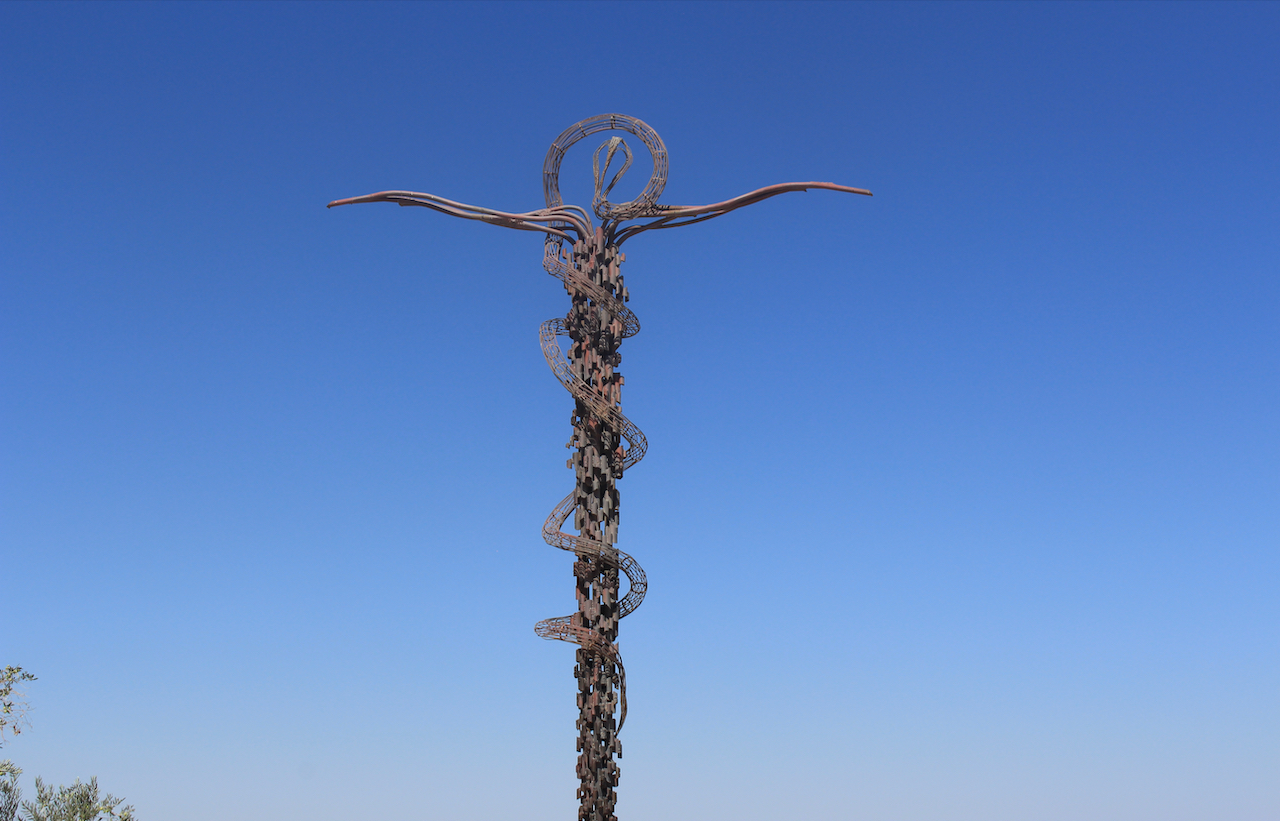The kingdom that Hezekiah inherited from his father was in a mess. King Ahaz had tried to imitate the nations around Judah. He introduced every form of idolatry that was being practiced. “He even made his son pass through fire, according to the abominable practices of the nations whom the Lord had driven out before the people of Israel. He sacrificed and made offerings on the high places, on the hills, and under every green tree.” (2 Kings 16:3-4 NRSVUE). His focus wasn’t on following God.
When Hezekiah became king at the age of 25 he had a different outlook from his father. He wanted to follow God. Perhaps he could see that the northern kingdom wasn’t faring well through following the pagan gods. He wanted to do what was right in God’s eyes and set out to imitate Israel’s great king David.
“He removed the high places, broke down the pillars, and cut down the sacred pole. He broke in pieces the bronze serpent that Moses had made, for until those days the people of Israel had made offerings to it; it was called Nehushtan. He relied on the Lord, the God of Israel, so that there was no one like him among all the kings of Judah after him or among those who were before him. For he held fast to the Lord; he did not depart from following him but kept the commandments that the Lord had commanded Moses. The Lord was with him; wherever he went, he prospered. He rebelled against the king of Assyria and would not serve him.” (2 King 18:4-7)
Hezekiah realised that in order to serve God he needed to break ties with any form of idolatry. All places where idols were worshipped had to go along with their images. This even included the bronze serpent that Moses had made. This item had now been around for 700 years. The people of Judah were now worshipping it as an god and had given it a name! Did they not remember the reason it had been made in the first place? It was because Israel had rebelled against God. Yet here they were, 700 years later, still rebelling and even worshipping that which had to be made to save the people from death.
In order to hold fast to God he had to get back to God’s revealed word, which God had given to Moses and he had recorded it in the Torah. One of the first things any king was supposed to do was write down God’s Law.
“When he has taken the throne of his kingdom, he shall write for himself a copy of this law on a scroll in the presence of the Levitical priests. It shall remain with him, and he shall read in it all the days of his life, so that he may learn to fear the Lord his God, diligently observing all the words of this law and these statutes, neither exalting himself above other members of the community nor turning aside from the commandment, either to the right or to the left, so that he and his descendants may reign long over his kingdom in Israel.” (Deuteronomy 17:18-20)
Perhaps Hezekiah was one of the few kings who did this (it is thought that possibly new kings were to copy the book of Deuteronomy, the second giving of the law). Perhaps this had reminded him of all that God wanted of his people. By following God’s commandments he was relying on God and God blessed him as a result.
What about us? Do we know God’s word so that we realise what God wants of us today? Do we spend time reading and studying God’s word so that it becomes part of our lives? Do we really rely on God? Do we hold fast to him as Hezekiah did? We, too, need to hold fast to and rely on God.
“But seek first the kingdom of God and his righteousness, and all these things will be given to you as well.” (Matthew 6:33)
Photo by Jon Galloway: replica of the bronze serpent, Mount Nebo, Jordan.
Readings for next week: 2 Kings 13-18
- Jesus our Passover Lamb - 2026-01-23
- Growing in faith despite difficult circumstances - 2026-01-16
- God’s temple - 2026-01-09
